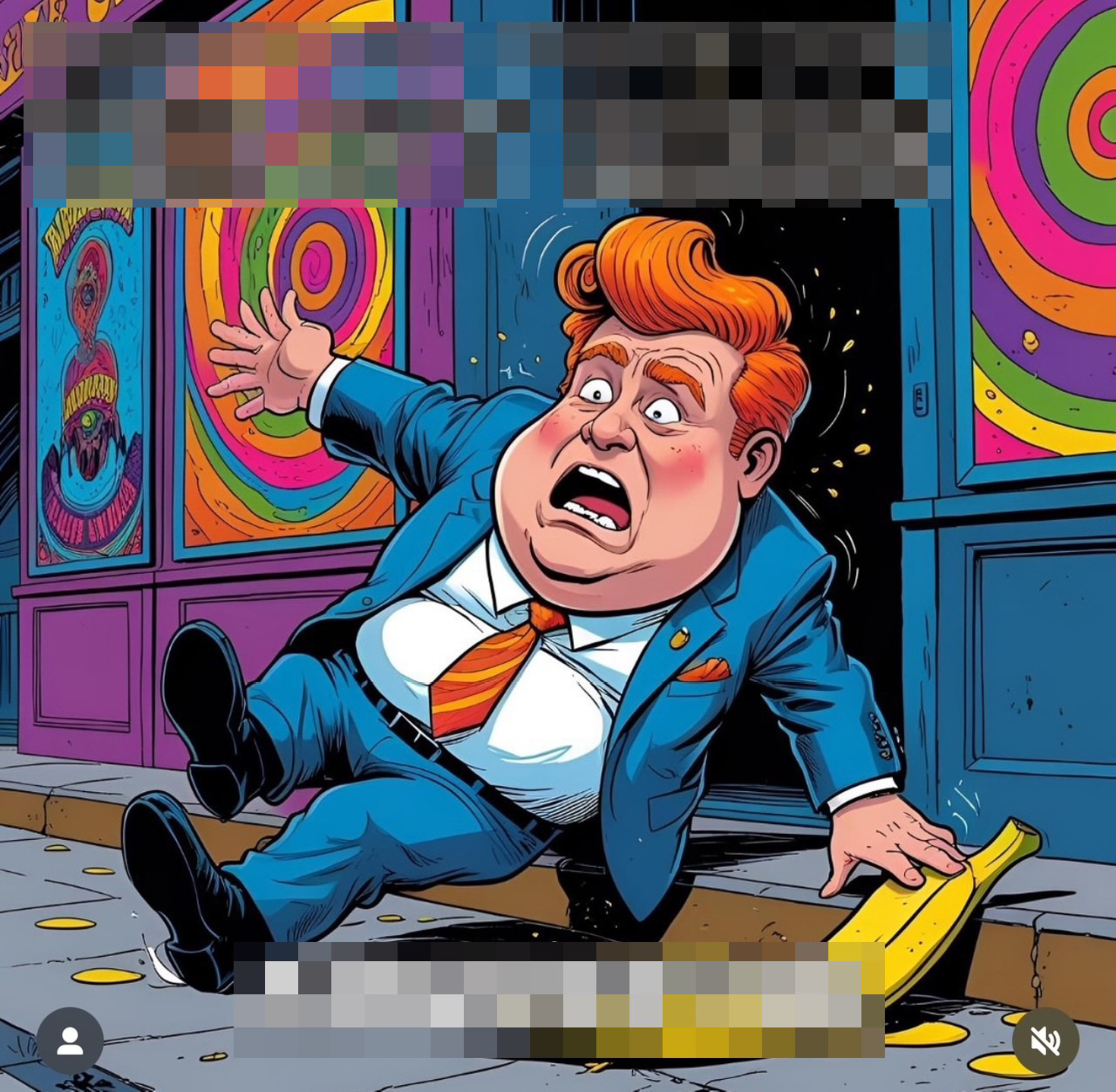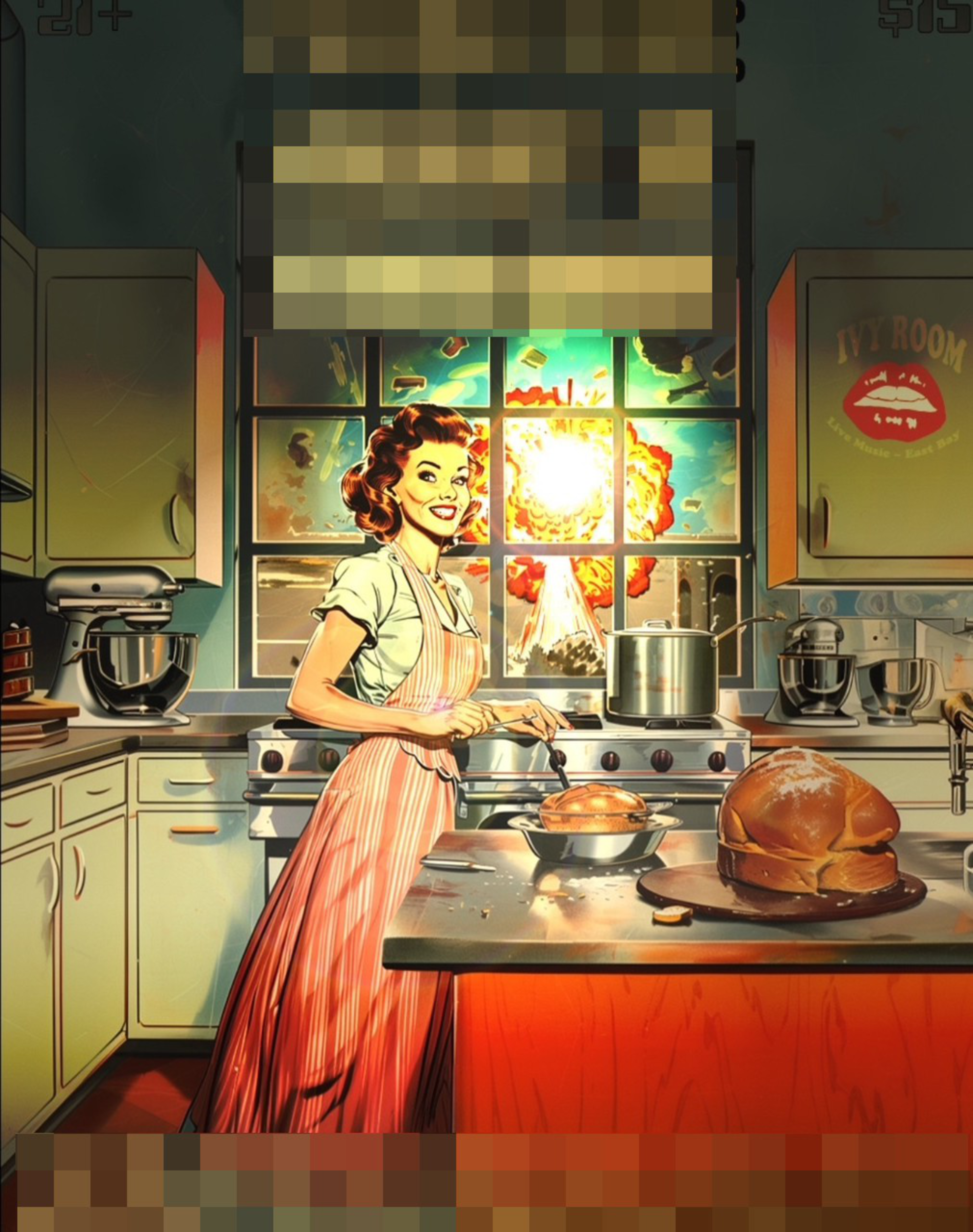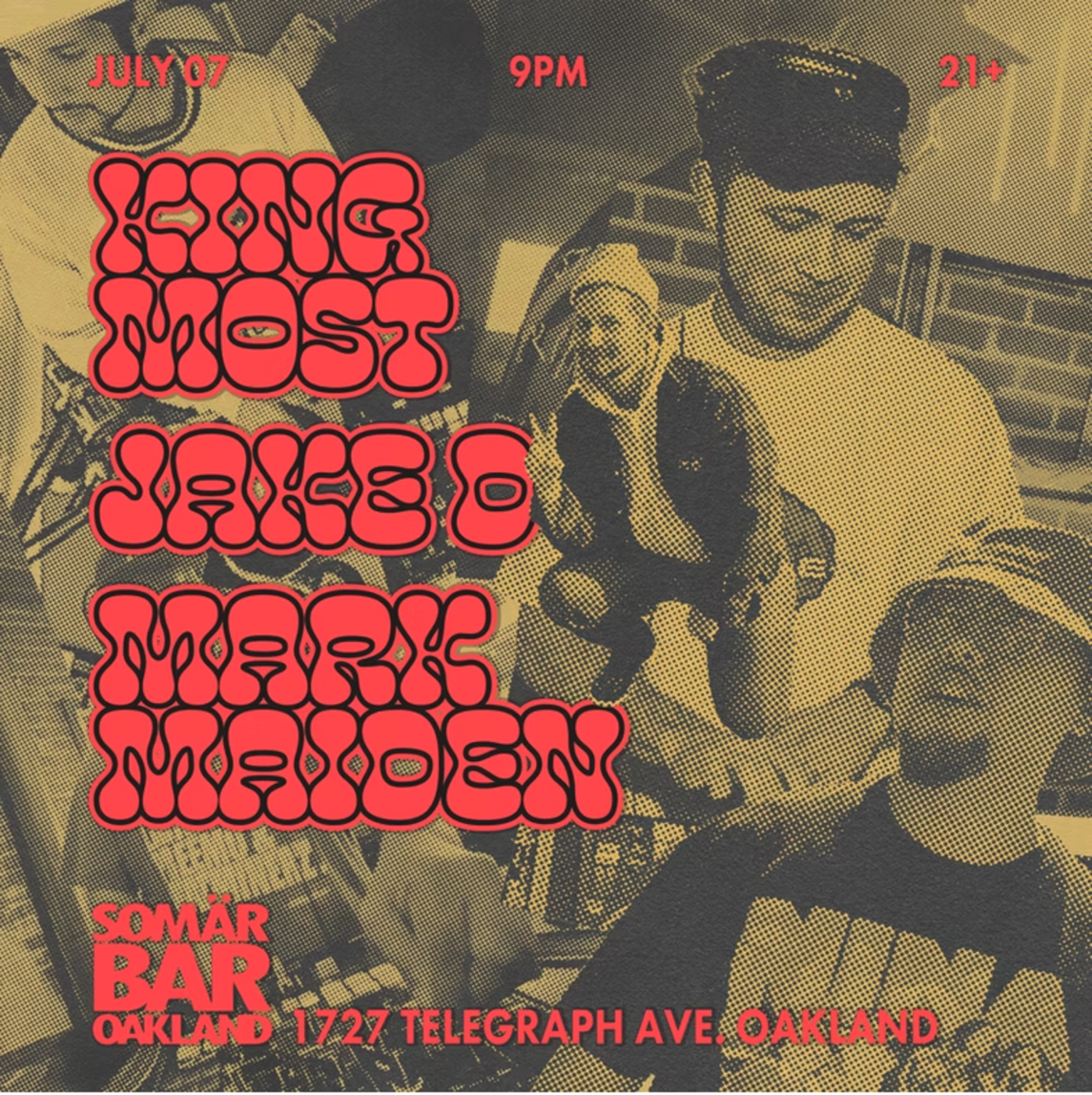AI art is not punk. And Billy Joe Agan has had enough of it already. In what appears to be a first for the nation, the co-owner of Oakland’s Thee Stork Club announced Tuesday in an Instagram post (opens in new tab) that the indie music venue will no longer let bands use AI tools to make art for their concert flyers.
Over the past three months, Agan says, more and more bands and promoters have been sending the club flyers that were obviously made with programs like ChatGPT, MidJourney, Leonardo AI, or Dall-E. The hands have too many fingers. The texture is all smooth. Words are slapped on strangely. Everything just feels a little…wrong. Almost like a human didn’t make it.
“AI is super icky,” Agan said in an interview. “And as a small alternative venue, it just goes against the kind of philosophy of art and creativity that we believe in here.”

As anyone who’s ever caught a show at the Fillmore or Great American Music Hall knows, posters and flyers have been integral to music culture for decades. Particularly in Oakland, Agan notes, the scene is extremely close-knit: DJs hire artists to make their flyers, and artists hire DJs to play their gallery openings. It’s about making cool shit together.
“There is really nothing lazier or more thoughtless or a worse calling card for your band than churning out an ugly AI flyer,” said longtime scenester and designer Janelle Blarg, who has made art for Thee Stork Club’s sister music festival, Mosswood Meltdown.
Agan couldn’t agree more. So from now on, Thee Stork Club will require that all promotional material be made by a human.

To make this easier, Agan enlisted some of his favorite local illustrators as on-demand flyer-makers. Now, whenever an act sends in a flyer that was clearly made using a ChatGPT prompt, Agan will respond with a list of human artists who can be contracted instead. These artists will offer a “homies discount,” as Agan put it, charging $50 to $100 per flyer because they are coming through Thee Stork Club.
“A lot of artists and illustrators cut their teeth on making flyers for events and stuff locally,” Agan said. “A lot of people, that’s the first professional gig that they ever get.”
Matchmaking between bands and artists isn't a new thing. Cafe Du Nord, for instance, works with artists to offer “tailored and stylish poster art that bands can leverage if they don’t have a dedicated art department,” according to a representative. The Castro venue hasn’t been asked to promote any shows using AI-generated flyers, but an indie band did once ask it to promote an AI-generated music video. The venue politely declined.
The move by Thee Stork Club makes artists in the scene feel supported in the battle to protect their livelihoods from AI capture at a time when their small-scale jobs are increasingly going to bots.
“When I heard about it, I just really felt like someone has my back,” said graphic artist and DJ (opens in new tab) Albert Luera.
San Francisco-based illustrator Lil Tuffy, who has made posters for Chappell Roan and Insane Clown Posse, wrote in response to Agan’s announcement (opens in new tab): “Finally, someone who gets it.” (Below is an example of his very human-created concert art for Wu Tang Clan at Chase Center.) Agan says more than 100 illustrators have asked to be added to his list.
Music fans seem happy about it, too, with many commenting that they’ve been turned off by AI promo materials and decided not to attend shows because of it. Agan hopes other venues take note.
“You automatically lose 1 billion punk points, and credibility takes a swan dive into the crapper,” Blarg said of acts that use AI-generated flyers. “There are so many artists you can hire instead or just use Photoshop or Canva like your forefathers did.”
The announcement comes amid a growing backlash to the use of AI to replace illustrators. This summer, graphic artists in China (opens in new tab) raised the alarm about their jobs being replaced by AI, and a survey last year (opens in new tab) by the Society of Authors found that a quarter of illustrators reported losing work to the technology.
This week in Portland, Oregon, cult favorite bookseller Powell’s – the largest indie bookstore in the U.S. – came under fire for using AI art on its merch. Critics blasted (opens in new tab) Powell’s for undermining human creativity. In an open letter to the store, one local group called the AI-generated merch “an insult to life, to the human capacity for creating art, and to the writers that Powell’s ostensibly exists to celebrate.” (Powell’s said (opens in new tab) it had hired a local artist who used Adobe tools that incorporate AI to make the shirt in question.)
“The whole AI thing feels like that time they put that U2 album on everyone’s phones,” said Luera. “Everyone kind of got mad at that, but we don’t have that attitude anymore, because we’ve all been worn down. They just force this stuff on us, and we’re like, oh, man, I didn’t ask for this.”

